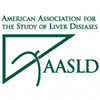 A new study conducted by Spanish researchers has sounded the alarm that rates of liver cancer are rising dramatically among people with HIV, solely as a result of coinfection with either hepatitis B, C or both, aidsmap reports. Published in the online edition of Clinical Infectious Diseases, the analysis of records from 18 hospitals in Spain concerning HIV patients between 1999 to 2010 offered a grim portrait: Those with hepatocellular carcinoma (HCC, the most common liver cancer) were often diagnosed late and had generally poor prognoses; and less than a third of the liver cancer patients coinfected with the hepatitis C virus (HCV) ever received antiviral treatment.
A new study conducted by Spanish researchers has sounded the alarm that rates of liver cancer are rising dramatically among people with HIV, solely as a result of coinfection with either hepatitis B, C or both, aidsmap reports. Published in the online edition of Clinical Infectious Diseases, the analysis of records from 18 hospitals in Spain concerning HIV patients between 1999 to 2010 offered a grim portrait: Those with hepatocellular carcinoma (HCC, the most common liver cancer) were often diagnosed late and had generally poor prognoses; and less than a third of the liver cancer patients coinfected with the hepatitis C virus (HCV) ever received antiviral treatment.
The researchers identified 82 cases of liver cancer in people with HIV, all of them among people coinfected with viral hepatitis. Sixty-six people (81 percent of the cases) had hepatitis C; 6 people (7 percent) were coinfected with hepatitis B; and 10 people (12 percent) had both hep B and C. Only 22 (29 percent) of the hep C patients had received antiviral therapy for the virus; among that group, six had achieved a sustained virologic response (SVR, considered a cure). (A recent study [http://www.hepmag.com/articles/HM_Liver_Cancer_2502_23119.shtml] found that antiviral therapy reduces rates of liver cancer among people with hepatitis C, irrespective of reaching an SVR, although researchers could not determine whether the benefits of therapy merely delayed the onset of liver cancer.) Those who received antiviral therapy had a mortality rate of 29 percent compared with a rate of 87 percent for those who did not.
The scientists found that incidence of liver cancer spiked 14-fold between 2000 and 2009. They theorized that the dramatic increase was a consequence of four factors: coinfected patients are living longer thanks to HIV therapies, giving liver cancer more time to develop; hep C therapies do not work as well in HIV-positive people; HIV may speed the course of hepatitis C-related disease; and the improved clinical care for liver cirrhosis has also extended the lives of coinfected patients, giving cancer more time to develop.
The study authors called on clinicians to remain vigilant for liver cancer among their coinfected patients and to perform routine ultrasound exams to screen for the disease, even among those who have been cured of hepatitis C.
To read the aidsmap report, click here.
To read the study abstract, click here.
Advertisement
Advertisement
Advertisement






1 Comment
1 Comment